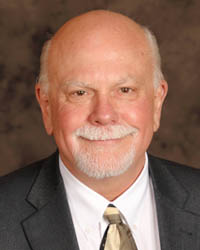

How To Protect Your Hearing As You Age
Does it seem like more people are mumbling these days? Have you found it hard to follow conversations in social settings or restaurants? You may be experiencing hearing loss, and it’s important to get a hearing exam as soon as possible.
Hearing loss can cause a range of problems for older adults, including:
Overall, hearing loss can have a significant impact on the lives of older adults, affecting their physical health, emotional well-being, and social connectedness.
But there are things you can do to take care of your hearing:
Age-related hearing loss is not an inevitable part of aging. You don’t need to feel left out when you’re in a social setting or miss beautiful sounds such as your grandchildren’s laughter. Consider regular hearing exams to be as important as regular physical exams.
Private In-Home Care Can Help
Hearing loss is really quite common among older adults and often is simply a part of the natural aging process. It can significantly impact their quality of life. Private In-Home care can play an important role in helping older adults stay on top of hearing issues in the following ways.
Regular Communication — Care-Professionals can communicate with older adults regularly to identify any changes in hearing or other issues that may be affecting their ability to hear and understand.
Monitoring Hearing Aids — Our Right at Home Care Professionals can help ensure that the device is functioning properly and is being used correctly. They can also help to clean and maintain the hearing aid to ensure that it is effective.
Assistance with Appointments — Care Professional can assist older adults in making and attending appointments with audiologists or other hearing specialists.
What's A Good Fit For You?
Choosing the right hearing aid can be a complex process that involves multiple factors, including the severity and type of hearing loss, lifestyle and communication needs, and personal preferences. Here are some steps clients can take to determine what hearing aid is a good fit for them.
Consult with an Audiologist — The first step in choosing a hearing aid is to consult with an audiologist.
Consider the Type of Hearing Aid — There are several types of hearing aids available, including behind-the-ear (BTE), in-the-ear (ITE), and in-the-canal (ITC) devices. Each type has its own advantages and disadvantages, and the audiologist can help the client determine which type is the best fit for their hearing loss and lifestyle.
Evaluate Features — Hearing aids come with a range of features, such as noise reduction, directional microphones, and Bluetooth connectivity. The client should consider which features are most important to them based on their communication needs and lifestyle.
Consider Cost — Hearing aids can vary widely in cost, with some models costing several thousand dollars. The client should consider their budget and insurance coverage when choosing a hearing aid.
By providing support and assistance with hearing-related issues, our Right at Home Care Professionals can help older adults stay on top of their hearing health and maintain their independence and quality of life.




